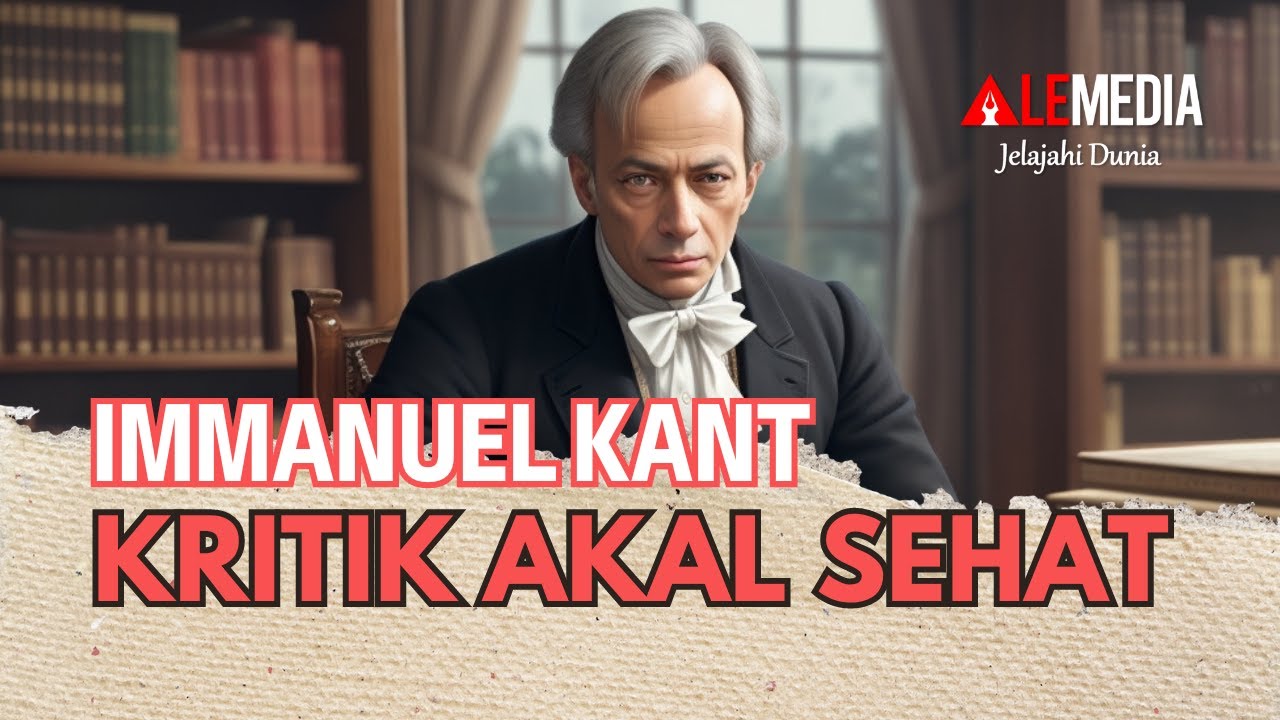Mother Forkin' Morals with Dr. Todd May - Part 4: Deontology - The Good Place (Digital Exclusive)
Summary
TLDRIn this insightful discussion, Todd May, a philosophy professor at Clemson University, explores the ideas of Immanuel Kant. He explains Kant's concept of 'pure practical reason' and the 'categorical imperative,' which guides moral actions based on universal principles. Using examples like selling a car with worn brakes or cheating on a test, May illustrates how Kant’s philosophy emphasizes acting in ways that could be applied universally. The video also touches on the challenges of moral intention, as seen in the struggles of Chidi, a character who grapples with ethical decision-making.
Takeaways
- 😮 Kant introduced a unique idea in philosophy that differs from earlier thinkers like Plato and Aristotle.
- 🧠 Kant's philosophy emphasizes using pure reason to decide what is morally right, without reference to real-world outcomes.
- 🚗 In Kantian ethics, when making a decision (e.g., selling a car with worn brakes), you should ask if you'd want to live in a world where everyone makes the same choice.
- 🌍 Kant's main interest is in creating universal principles, asking, 'Would the world be a better place if everyone did this?'
- 📝 The categorical imperative is Kant’s principle: only act according to maxims you’d want to be universal laws.
- 📚 Cheating or lying is self-defeating in Kantian logic—if everyone did it, it would destroy the purpose of the act itself.
- 🔄 Kant's approach is based on the logical consistency of actions, not their actual consequences in the real world.
- ❓ Chidi struggles in applying Kant's theory because he's unsure of his own intentions, a key part of Kantian ethics.
- ☕ Even small actions, like getting coffee for a boss, can be viewed differently depending on the underlying intention.
- 💡 Describing an action in multiple ways leads to different intentions, which is a core problem in Kant's theory of intentions.
Q & A
Who is the main speaker in the transcript and what is their profession?
-The main speaker is Todd May, a philosophy professor at Clemson University who has been teaching philosophy for about 30 years.
What is the core philosophy Todd May is discussing?
-Todd May is discussing Immanuel Kant's philosophy, particularly Kant's concept of pure practical reason and the categorical imperative.
What is the categorical imperative according to Kant?
-The categorical imperative is a principle that states you should act only on maxims that you can will to be a universal law, meaning that you should only do something if you would want everyone else to do the same in all similar situations.
What is an example used to illustrate Kant’s philosophy in the transcript?
-An example used is selling a car with worn brakes. The question is whether or not to tell the buyer about the worn brakes. According to Kant's philosophy, you should ask yourself if you would want to live in a world where everyone disclosed such information. If yes, you should tell the buyer.
How does Kant’s philosophy view lying and cheating?
-Lying and cheating are seen as self-defeating under Kant’s philosophy. If everyone lied, nobody would believe anyone, making lying pointless. Similarly, if everyone cheated on tests, there would be no one to cheat off of, rendering cheating meaningless.
How does Kant’s philosophy relate to intention when making decisions?
-Kant’s philosophy emphasizes that actions should be based on the right intentions. It’s important to ask why you're doing something and if your intention is morally correct, regardless of the consequences.
What challenge does Chidi face in relation to Kant’s philosophy?
-Chidi struggles with uncertainty about whether his intentions are right. He is often unsure if he is acting for the right reasons, a challenge that relates to Kant's emphasis on having the correct intentions behind actions.
What dilemma does Todd May describe using the example of getting coffee for a boss?
-Todd May explains that a person might get their boss coffee for different reasons, such as believing it’s the right thing to do or wanting to get recognized for a raise. The different ways of describing the act lead to different intentions, which can cause uncertainty about the true motivation behind the action.
Why is Kant considered an original thinker according to Todd May?
-Kant is considered an original thinker because his approach to ethics, particularly the idea that pure reason can determine the right course of action without reference to actual events in the world, was unique and hadn't been developed in the same way by earlier philosophers.
How does Kant's philosophy deal with what actually happens in the world?
-Kant's philosophy is not concerned with the actual outcomes of actions in the world. Instead, it focuses on whether the principles behind actions can logically be applied universally. It's about the logic of the principle rather than the practical consequences.
Outlines

Cette section est réservée aux utilisateurs payants. Améliorez votre compte pour accéder à cette section.
Améliorer maintenantMindmap

Cette section est réservée aux utilisateurs payants. Améliorez votre compte pour accéder à cette section.
Améliorer maintenantKeywords

Cette section est réservée aux utilisateurs payants. Améliorez votre compte pour accéder à cette section.
Améliorer maintenantHighlights

Cette section est réservée aux utilisateurs payants. Améliorez votre compte pour accéder à cette section.
Améliorer maintenantTranscripts

Cette section est réservée aux utilisateurs payants. Améliorez votre compte pour accéder à cette section.
Améliorer maintenantVoir Plus de Vidéos Connexes

Immanuel Kant (resumo) | FILOSOFIA

Immanuel Kant - Der Weltweise aus Königsberg

IMMANUEL KANT 🔥 KRITIK AKAL SEHAT 🔥 #ImmanuelKant #pemikirankritis #historyb

Filosofia - Kant e l'Illuminismo - Maurizio Ferraris

PHILOSOPHY - The Good Life: Kant [HD]

PEDAGOGIA EM IMMANUEL KANT, INTRODUÇÃO (muita pretensão e ousadia) AULA 01 - CONTEXTUALIZAÇÃO
5.0 / 5 (0 votes)
